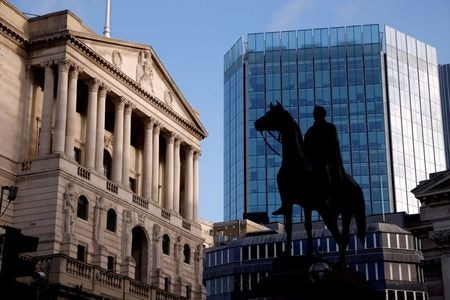The Bank’s climate warnings are too overblown to help

What was it HSBC’s now-suspended banker Stuart Kirk said about alarmist climate warnings? “Unsubstantiated, shrill, partisan, self-serving, apocalyptic warnings are ALWAYS WRONG” was the title of the slide which has seen him taking some unexpected time in the garden, as he dared to offer the heretical view that reports of the world’s imminent demise may be exaggerated.
Whether one agrees with him or not, it is in that context that we must see the Bank of England’s warning yesterday that in a worst-case scenario the UK’s largest banks and insurers would shoulder nearly £340bn worth of climate losses by 2050.
This worst-case scenario included, amongst other things, a complete lack of further action by governments to do anything – at all – to drag down greenhouse gas emissions. For the sake of its climate stress test, the globe would see temperature increases of 3.3 C by 2050 (the current target is below 1.5 C) despite the Bank itself admitting that even if we whistled dixie on climate it would take until around 2080 before we saw anything like that.
Even the middle-ground scenario sees UK unemployment rising to 8.5 per cent due to climate change (no, us neither), and £110bn in losses. That’s with, by the way, the UK achieving net zero emissions by 2050.
We shall park the questionable remit the Bank has to start advising on government environmental policy, as the stress test clearly is doing.
Nor will we make too much of the fact that the Bank’s inflation forecasts for this year have proven about as accurate as if we’d asked a monkey to throw at a dartboard, which might suggest a 2050 prediction should be taken with a pinch of salt.
The Bank may believe its apocalyptic warnings will spur banks and insurers into action (of course, they already are. Your average large insurer has a more accurate weather forecasting system than the Met Office), but can we bin the alarmism?
